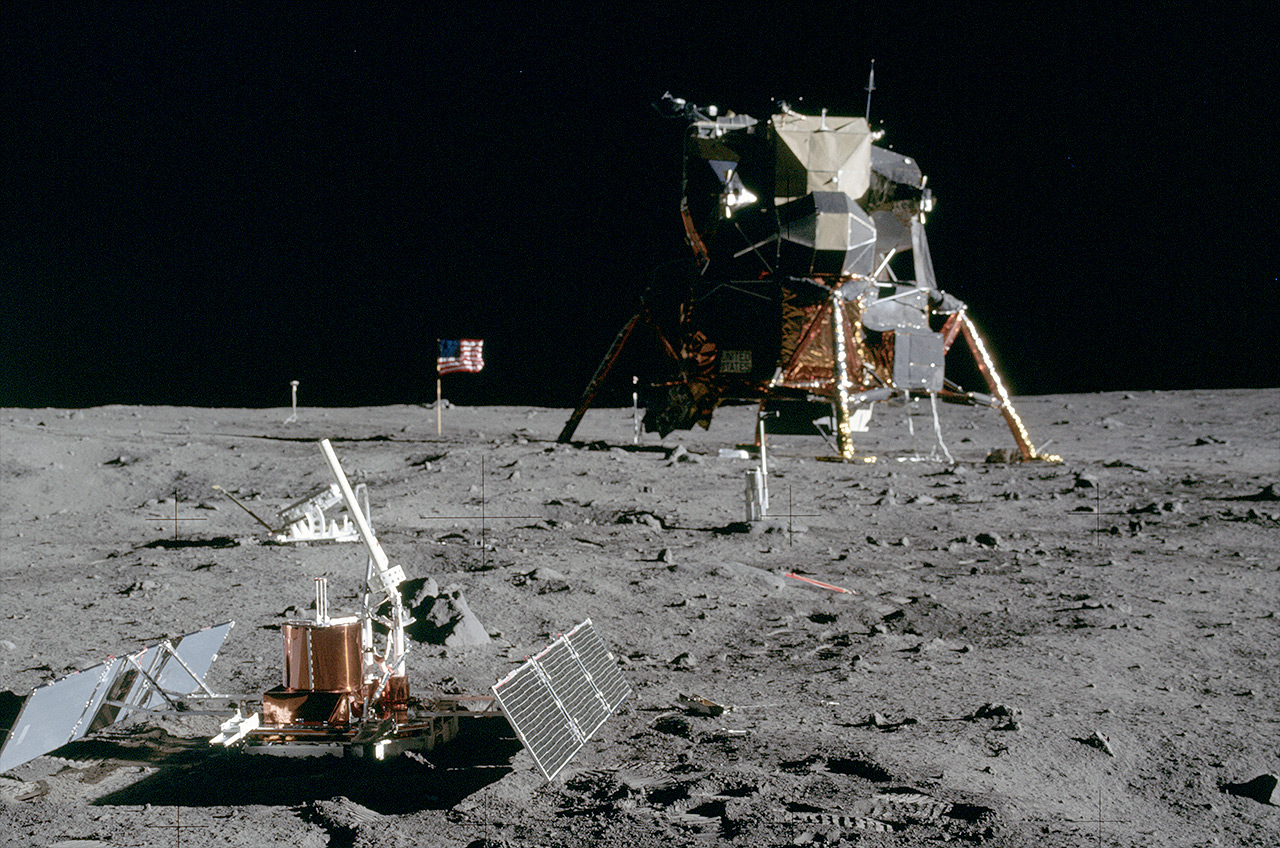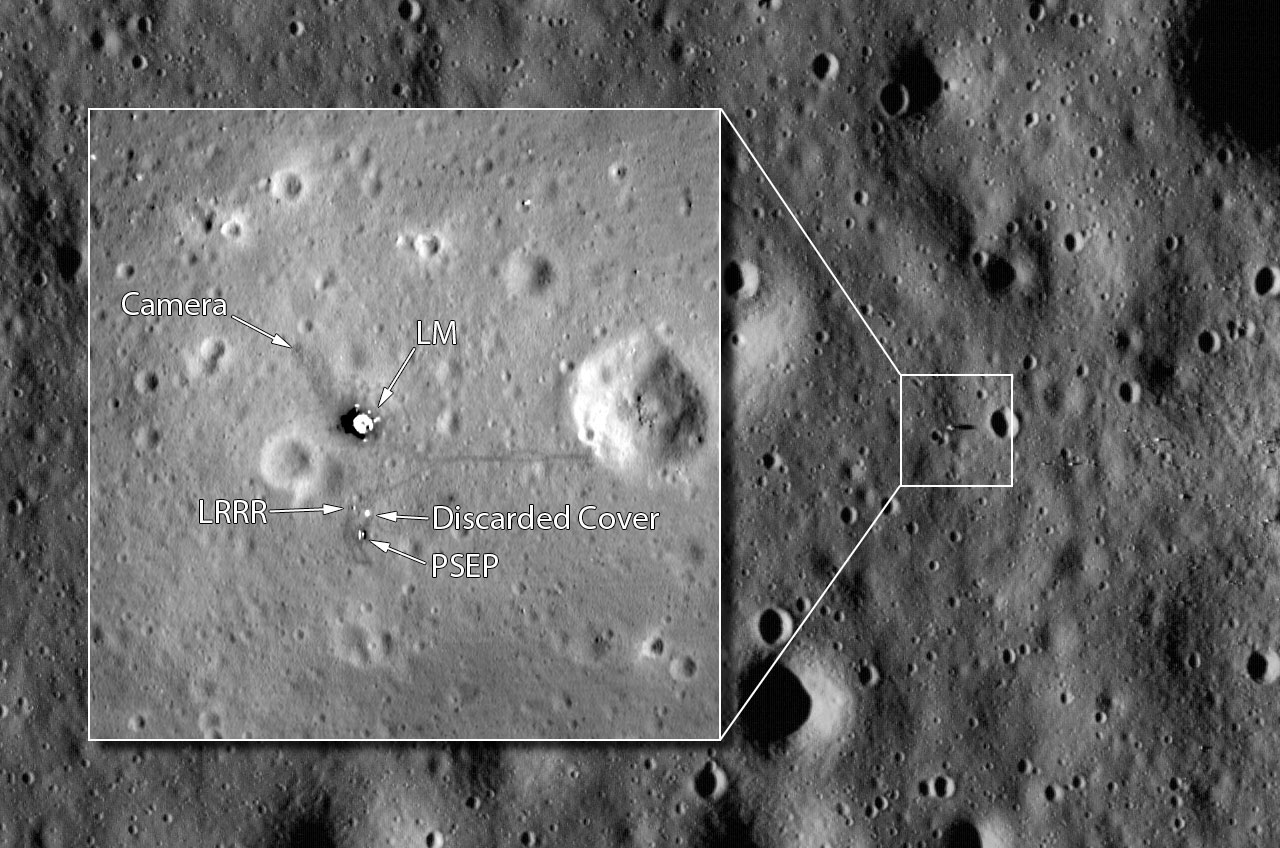New law is first to protect Apollo sites from future moon missions

Breaking space news, the latest updates on rocket launches, skywatching events and more!
You are now subscribed
Your newsletter sign-up was successful
Want to add more newsletters?

Delivered daily
Daily Newsletter
Breaking space news, the latest updates on rocket launches, skywatching events and more!

Once a month
Watch This Space
Sign up to our monthly entertainment newsletter to keep up with all our coverage of the latest sci-fi and space movies, tv shows, games and books.

Once a week
Night Sky This Week
Discover this week's must-see night sky events, moon phases, and stunning astrophotos. Sign up for our skywatching newsletter and explore the universe with us!

Twice a month
Strange New Words
Space.com's Sci-Fi Reader's Club. Read a sci-fi short story every month and join a virtual community of fellow science fiction fans!
Preserving the historic sites where humans first landed on the moon is now not only a good idea, it is also the law.
The United States has enacted its first legislation that requires American companies and other entities working with NASA on new missions to the moon to avoid disturbing the U.S. hardware that was left there 50 years ago. The "One Small Step to Protect Human Heritage in Space Act" became law on Thursday (Dec. 31).
"I have long advocated for the preservation of the Apollo artifacts, which hold deep cultural, historical and scientific value for not only the United States, but for all of humanity," Rep. Eddie Bernice Johnson (D-TX), chair of the House Committee on Science, Space and Technology, said in a statement. "It is important that NASA and the United States lead the way in guiding responsible behavior in space, and this legislation to preserve our human heritage in space is, itself, one small step in practicing that leadership."
Related: NASA's 17 Apollo moon missions in pictures
The new law directs NASA to require future moon missions under its purview to abide by a set of "best practice" recommendations drafted in 2011 "to protect and preserve the historic and scientific value of U.S. government lunar artifacts." The recommendations, which until now have been non-binding, address the paths that spacecraft should follow when descending to the lunar surface and define "keep-out zones" to avoid the purposeful or inadvertent disturbance of the Apollo landing sites. Six missions touched down on the moon between 1969 and 1972.
U.S. commercial enterprises and others seeking contracts, grants or other agreements for lunar activities carried out by, for, or in partnership with NASA will need to agree to stay clear of the human heritage sites on the moon to be eligible for the requested support.
Further, the law requires NASA inform other relevant U.S. federal agencies of the preservation recommendations and encourage their use.
Breaking space news, the latest updates on rocket launches, skywatching events and more!
"As we go forward to the moon with the Artemis Program, NASA has been clear that we must do so sustainably," said NASA Administrator Jim Bridenstine. "As part of the Artemis Accords agreements signed with partner nations, NASA has emphasized that protecting historically significant sites is critical, and I applaud the leaders of this legislation for their commitment to ensuring that future lunar science and exploration is done in a safe and transparent manner."
The Artemis Accords, which to date has been agreed to by nine countries — Australia, Canada, Italy, Japan, Luxembourg, Ukraine, United Arab Emirates, United Kingdom and the United States — also includes the preservation of human heritage sites among its ten guiding principles that serve as the framework for international partners to participate in NASA's Artemis program. (Brazil has signed a statement of intent with NASA to become the first South American country to become a party to the accords.)
The One Small Step to Protect Human Heritage in Space Act applies to companies such as Intuitive Machines, Astrobotic and Masten Space Systems, which have contracts under NASA's Commercial Lunar Payload Services initiative to deliver science payloads to the surface of the moon. The law also applies to SpaceX, Blue Origin and Dynetics, which are developing human landing systems for the Artemis program.
"The Apollo landing sites mark one of humanity's greatest achievements: the first time we were able to do more than look up at the sky, but actually leave our planet and visit another world," said Rep. Frank Lucas (R-OK), ranking member of the House Science, Space and Technology Committee. "The One Small Step Act maintains these historic sites while encouraging the spirit of exploration that got us to the moon."
The bill, as first introduced by Senators Gary Peters (D-MI) and Ted Cruz (R-TX) and passed by the Senate in July 2019, applied to all U.S. federal agencies responsible for licensing activities in outer space, not just NASA as enacted. It also only extended protection to Tranquility Base, the Apollo 11 landing site, rather than all six Apollo landing sites, and provided for a penalty fee for violations, which the law as passed omits.
The changes to the One Small Step Act were made in a companion bill introduced into the U.S. House of Representatives by Johnson, Lucas, Subcommittee on Space chairwoman Kendra Horn (D-OK) and ranking member Brian Babin (R-TX). The House passed the bill on Dec. 16 and the Senate agreed to the amendments four days later.
The legislation, as enacted, allows the NASA Administrator to waive restrictions on accessing the Apollo landing sites if the reasons for doing so are legitimate and have significant historical, archaeological, anthropological, scientific or engineering value.
"I saw Apollo bring out the best of America and the best of humanity," said Thomas Stafford, a former NASA astronaut who flew to the moon as commander of Apollo 10. "The efforts of Senators Peters and Cruz and Congressmen Johnson, Lucas, Horn, and Babin will help ensure the achievements of the Apollo program serve as a beacon of inspiration — not just for America but for people all over the world for generations to come."
Follow collectSPACE.com on Facebook and on Twitter at @collectSPACE. Copyright 2021 collectSPACE.com. All rights reserved.

Robert Pearlman is a space historian, journalist and the founder and editor of collectSPACE.com, a daily news publication and community devoted to space history with a particular focus on how and where space exploration intersects with pop culture. Pearlman is also a contributing writer for Space.com and co-author of "Space Stations: The Art, Science, and Reality of Working in Space” published by Smithsonian Books in 2018.
In 2009, he was inducted into the U.S. Space Camp Hall of Fame in Huntsville, Alabama. In 2021, he was honored by the American Astronautical Society with the Ordway Award for Sustained Excellence in Spaceflight History. In 2023, the National Space Club Florida Committee recognized Pearlman with the Kolcum News and Communications Award for excellence in telling the space story along the Space Coast and throughout the world.


